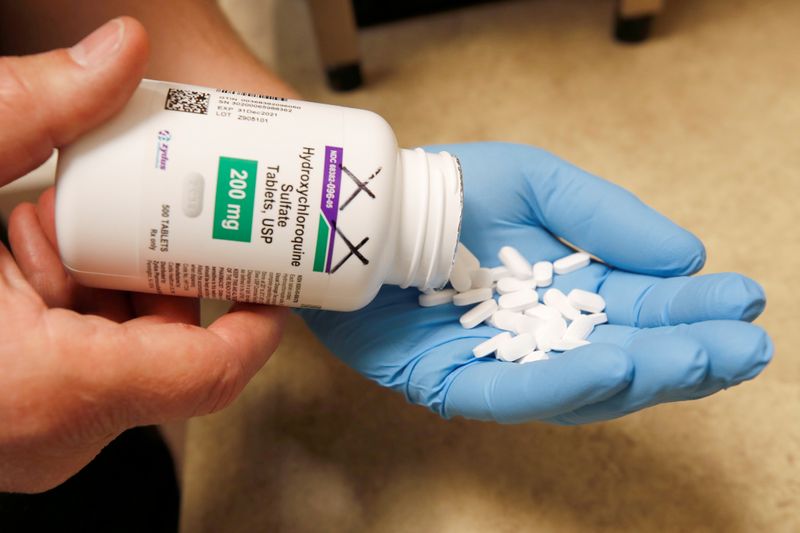By Neha Arora and Aftab Ahmed
NEW DELHI (Reuters) - India is seeking concessions for generic drugs it exports to the United States in return for opening its dairy markets and slashing tariffs on farm goods as the two sides seek to shore up a new trade deal, three sources said.
India accounts for 40% of U.S. generic drug imports, including the anti-malarial hydroxychloroquine, touted by U.S. President Donald Trump in the fight against the coronavirus.
To win preferential treatment on pharmaceutical exports, the government of Prime Minister Narendra Modi is dangling the carrot of opening its dairy and farm markets to the Trump administration, months ahead of the U.S. presidential election.
"Americans recognise the political compulsion that brings its own benefits," one of the sources with knowledge of the plans said.
India, one of the world's largest consumers of dairy products, has offered an opening to U.S. dairy imports through a quota-based system, two of the sources said. These products would need a certificate they are not derived from animals that have consumed feeds that include internal organs, blood meal or tissues of ruminants because of religious sensibilities in India.
India's federal trade ministry did not immediately comment and the U.S. Embassy in New Delhi referred questions to the U.S. Trade Representative.
The two sides have been negotiating a limited trade pact for more than a year aimed at restoring zero tariffs on a range of Indian exports to the U.S. under its Generalised System of Preferences (GSP) that the Trump administration withdrew last year, citing lack of reciprocal access to India's markets.
RELIANCE ON CHINA
But the Indian side has proposed a more ambitious deal than just focused on the GSP, a second source said. In addition to luring American dairy producers, it has offered to roll back tariff hikes on almonds, walnuts and apples.
It is the world's largest buyer of U.S. almonds, and second largest for its apples.
Indian Commerce Minister Piyush Goyal and U.S. Commerce Secretary Wilbur Ross expressed support for concluding an initial trade package and the possibility of an eventual Free Trade Agreement, the Indian government said.
While India seeks concessions on drug exports, the United States has raised concerns over India's import dependence on China for sourcing raw materials for generic drugs, Mukesh Aghi, president and chief executive at U.S.-India Strategic Partnership Forum, told Reuters.
Indian drugmakers rely on China, where the coronavirus was first identified at the end of last year, for almost 70% of the active pharmaceutical ingredients for their medicines.
"U.S. dependence on China indirectly is tied to India itself. And the U.S. is saying, if you want access to our market then become more self-sufficient than being dependent on China," Aghi said.
Differences remain on a large set of issues related to e-commerce and data storage rules. India's decision to levy a new 2% digital tax on foreign transactions, which upset companies such as Alphabet Inc's (O:GOOGL) Google and Amazon.com (O:AMZN), has become the latest sore point.

"The latest one on digital tax caught the U.S. side by surprise because it was announced in the budget without any discussion or consultation," Aghi said.